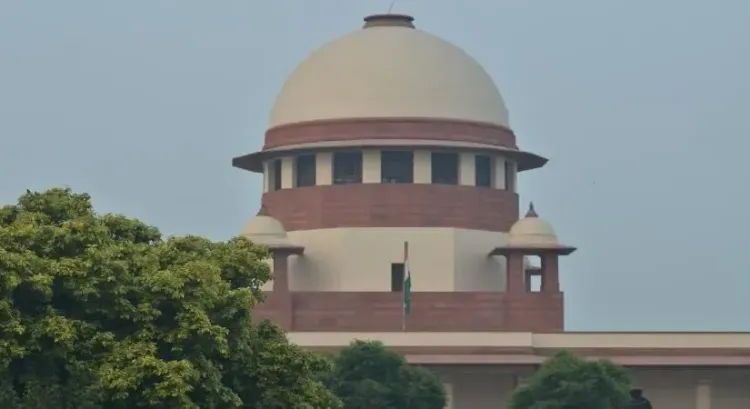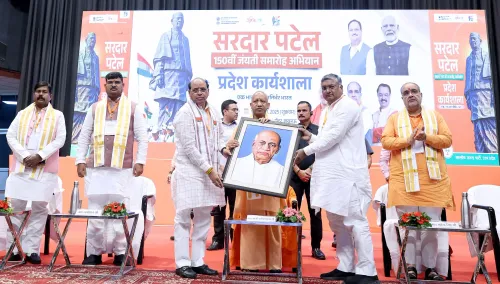Did the SC Reject the Request for Higher Fines in Criminal Cases?

Synopsis
Key Takeaways
- The Supreme Court dismissed a plea for higher fines in criminal cases.
- The court stated it lacks the authority to set guidelines for fines.
- The petitioner argued that current fines are insufficient due to currency depreciation.
- Significant fines were highlighted in traffic law amendments.
- Discussion on fines as deterrents and compensations continues.
New Delhi, Sep 1 (NationPress) The Supreme Court declined to hear a public interest litigation (PIL) on Monday that sought to establish guidelines for lower courts to consider imposing higher fines to better fulfill the punitive and deterrent aims of criminal law.
A bench led by Chief Justice of India (CJI) B.R. Gavai and Justice K. Vinod Chandran noted that the apex court does not possess the authority to formulate such guidelines, suggesting that the petitioner approach the legislature instead.
"We are not inclined to entertain this petition. The writ petition is, therefore, dismissed," stated the CJI Gavai-led bench.
The plea, presented by Sanjay Kulshresthra, who represented himself, argued that the fines stipulated under various criminal sections are insufficient for achieving their intended goals given the substantial depreciation of the rupee over the decades.
The PIL pointed out that the Motor Vehicles Act has seen amendments in recent years, significantly raising fines for various traffic violations — for instance, a fine of Rs. 10,000 for driving under the influence or for not having a Pollution Under Control (PUC) certificate.
"If an individual commits multiple traffic violations simultaneously, such as driving recklessly after consuming alcohol and ignoring traffic signals, the total fines could exceed Rs 50,000! These penalties certainly deter offenders," the petition highlighted.
It further contended that current fines under criminal law have become "too minimal" and that sums like Rs 100 or Rs 500 are inadequate to create any significant impact.
The petition insisted that fines should be substantial enough to discourage offenders or potential wrongdoers from engaging in illegal activities, asserting that the punitive nature of fines must induce a sense of fear.
Pointing out the inadequacy of fines as a means of compensating victims, the PIL cited a case where the trial court imposed a "grossly insignificant" additional fine of Rs 5,000 for a convict in a case involving a six-year-old rape victim. It argued that nominal fines such as Rs 100, Rs 200, or Rs 500 fail to meaningfully contribute to the government’s efforts in maintaining the judicial system. For fines to fulfill their intended purpose, they must be substantial, or otherwise, the goal becomes moot, the plea concluded.








